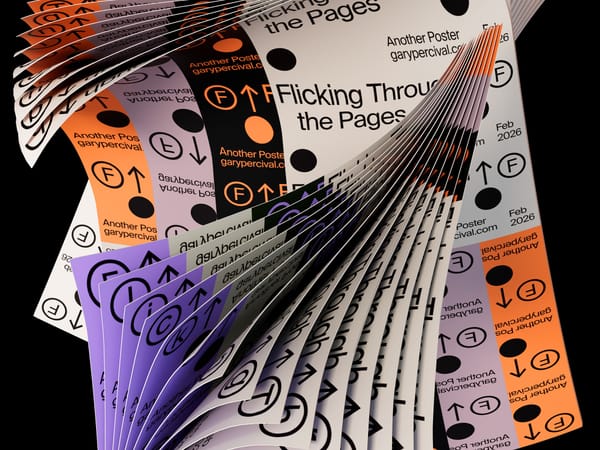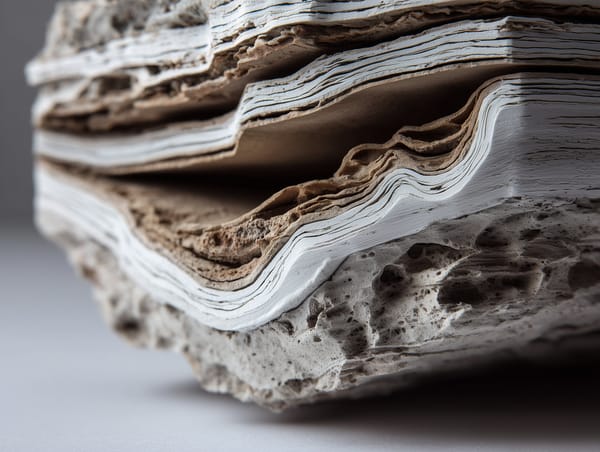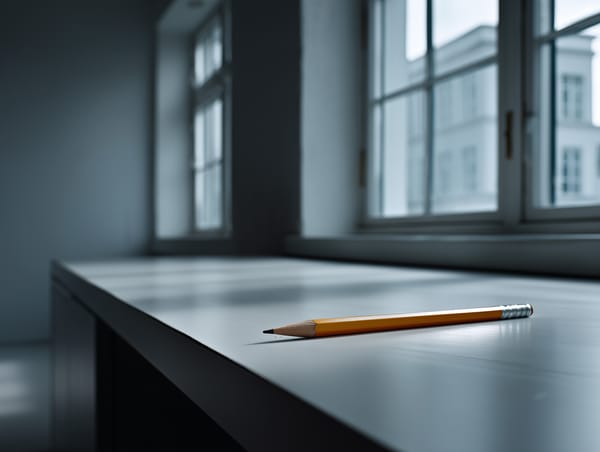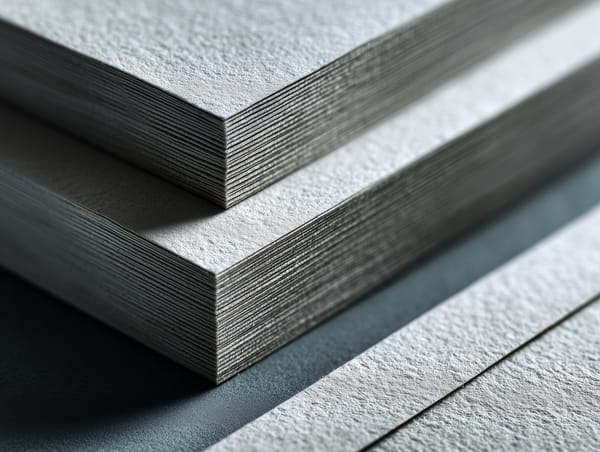The Work Still Matters on the Hard Days
“Good days build output; hard days build capability.”
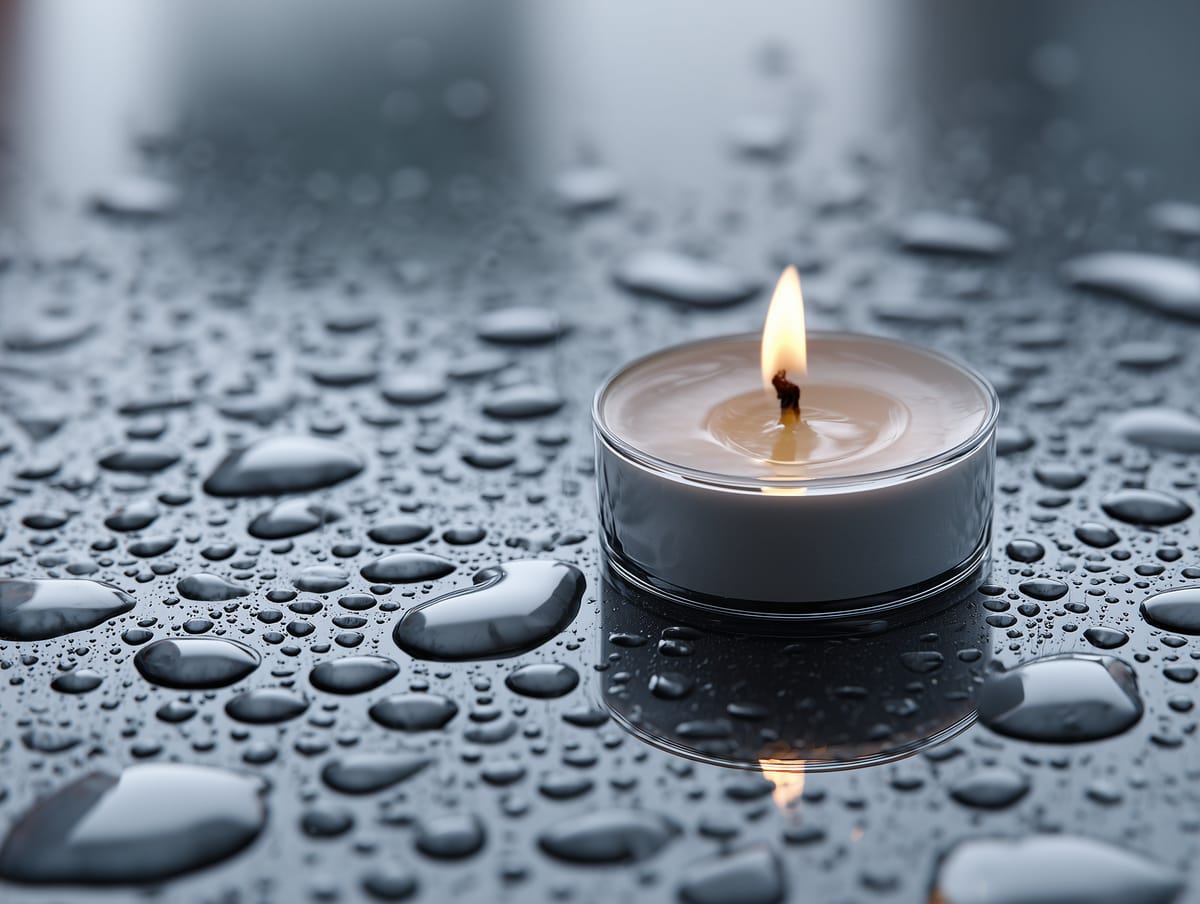
Every creative has days when the spark disappears.
The ideas feel flat. The software fights back. The client changes direction again.
You sit there and think, Why am I doing this?
It’s easy to love the work when it moves smoothly. But the work still matters on the hard days. Maybe even more.
Because the hard days shape your practice.
They teach you what consistency really means.
They prove whether you show up for the result or the craft.
The creative life isn’t built on inspiration. It’s built on showing up 〰️ especially when inspiration hides.
When the Work Feels Heavy
Some days, nothing flows.
Your confidence wobbles. The brief looks impossible. Every decision feels wrong.
Those are the moments when most people drift. They scroll, delay, or give up early.
But creative strength isn’t about avoiding those days; it’s about continuing through them with steady focus.
Hard days are part of the rhythm. They don’t mean you’ve lost your talent. They mean you’re practising it under pressure.
When you work through frustration, you train something deeper than taste or technique 〰️ you train discipline.
You learn that consistency doesn’t rely on mood; it relies on motion.
Even a small effort keeps momentum alive.
Progress Still Happens Quietly
Hard days don’t always show visible progress. The render breaks, the typography looks off, and the colour palette collapses.
But progress often hides in correction.
Fixing mistakes sharpens intuition. Revising old files builds judgement. Every frustrating problem adds another layer of understanding you’ll use later.
You can’t see that in the moment, but it compounds silently.
Steady effort under messy conditions builds confidence. You stop panicking when things go wrong because you’ve been here before 〰️ and you know the way out.
Good days build output; hard days build capability.
The Professional Difference
Amateurs wait for good days. Professionals build systems that carry them through hard ones.
The difference isn’t talent · · it’s trust in the process.
A professional designer knows there will be off days, dull days, and reactive days. So they create habits that make progress possible regardless.
They rely on structure when energy fades:
- simple checklists
- predictable file setups
- small daily goals that keep them moving
That’s what separates momentum from motivation.
You can’t control when you feel good, but you can control when you sit down.
When you show up despite resistance, the work starts trusting you again.
Why Creative Work Feels Personal
Creative work is emotional because it exposes what you think, feel, and value.
So when things fall apart, it feels like you’re falling apart too.
But that’s an illusion. Hard workdays don’t define you; they reveal your relationship with your process.
When the creative process hurts, it’s usually because you’re measuring it by output instead of effort.
You think, If the result isn’t great, the day was wasted.
But the real practice is learning to stay grounded when outcomes wobble.
If you stay calm enough to keep working through chaos, you’re building something far more important than a single design. You’re building emotional steadiness.
That’s what keeps your creativity safe from burnout.
The Role of Expectation
A lot of frustration comes from expectation. You imagine how the project should go, then spend the rest of the day watching reality disobey you.
The pain lives in the gap between plan and reality.
When you let go of how smooth it “should” be, you can finally focus on what is.
Every design process has mess built in. Every client project drifts. Every idea changes halfway through.
That’s not failure 〜 it’s friction. And friction shapes form.
When you expect rough patches, they lose their power. They become part of the process instead of proof that something’s wrong.
What You Build on the Hard Days
Hard days build three forms of strength:
Creative Strength
You learn to think under pressure. You make faster, more confident decisions because hesitation costs too much energy.
Operational Strength
You create systems that protect you. File hygiene, time buffers, and clear communication. These small things reduce future chaos.
Emotional Strength
You build calm. You respond instead of react. You realise most creative problems aren’t crises 〜 they’re puzzles.
Together, these strengths turn hard days into training.
They stop being interruptions and start being part of your evolution.
When the Work Doesn’t Feel Rewarding
Some days, you’ll finish and feel nothing; no pride, no spark, just relief that it’s done.
That’s fine; the goal isn’t to feel inspired every day. The goal is to build a body of work that reflects consistency over time.
The pride comes later 〜 when you look back and realise how many projects you finished while it felt impossible.
Hard days don’t erase progress 〜 they refine it.
Every one you survive increases your capacity for the next challenge.
The work you do on hard days proves your commitment more than the highlights ever could.
The Client Never Sees the Chaos
Here’s a small comfort: clients rarely know which of your days were good or bad.
They see the final file, not the emotional rollercoaster that produced it.
That’s why steadiness matters more than passion. Passion fluctuates; steadiness finishes things.
The professional doesn’t show how turbulent the process felt. They show results that look calm.
You can have a chaotic day privately and still deliver something clean.
That’s strength in disguise.
You Don’t Need to Be Inspired to Be Useful
Inspiration is fickle; discipline is dependable.
Most great portfolios were built in small, tired sessions, not bursts of clarity.
Mood doesn’t build momentum; motion does.
You rely on doing something · · however small · · until the work starts pulling you back in.
Once you start, inertia takes over. The same resistance that stopped you now keeps you going.
The trick isn’t to wait until you feel ready. The trick is to act until you remember why you started.
The Gift of Continuity
The longer you work, the more you realise creativity is cyclical.
There are highs, lows, breakthroughs, and plateaus.
Each season gives you something.
Highs give you excitement; lows give you resilience.
You need both to grow.
Hard days remind you that creativity isn’t a straight line. It’s a pulse. It dips and rises, but as long as it keeps beating, you’re still a creative.
Continuity becomes its own form of confidence.
You don’t panic when things dip because you’ve seen them recover before.
That steadiness keeps you in the game when others drift away.
Redefining Success
What if success wasn’t about how you feel while working but how reliably you keep working?
Imagine if your standard became Did I stay present? Did I give effort? Instead of Did I feel amazing?
That mindset shift changes everything.
The moment you separate performance from emotion, your productivity stabilises.
You stop riding emotional waves and start following the process.
The quality of your creative life doesn’t depend on perfect days; it depends on consistent ones.
The Long View
Every creative career includes days you’d rather forget 〜 the files that crashed, the ideas that didn’t land, and the clients who disappeared.
But those moments shape your durability.
The ability to do meaningful work when things feel meaningless is what separates short bursts from long careers.
Anyone can perform when it’s easy. Few endure when it’s not.
The hard days are practice for the moments that matter 〰️ deadlines, live campaigns, and big pitches.
If you can hold your focus when everything’s going wrong, you can handle anything.
So when the next hard day arrives, don’t curse it. Use it.
Slow down. Breathe. Pick one task and complete it.
That’s not giving up; that’s endurance in action.
And endurance builds legacy.
Closing Thought
The work still matters on the hard days.
Because every time you choose to keep going, you prove something to yourself 〜 that you’re not dependent on perfect conditions to create value.
You can’t control how the day feels. You can control what you do with it.
The creative path belongs to those who keep walking · · especially when it rains.
So stay steady. Keep moving. Trust that your consistency will turn today’s mess into tomorrow’s strength.
Because the hard days don’t define you 〜 they refine you.
✉️ Every other Sunday I share short, honest reflections on creativity & freelancing: Read the newsletter →
